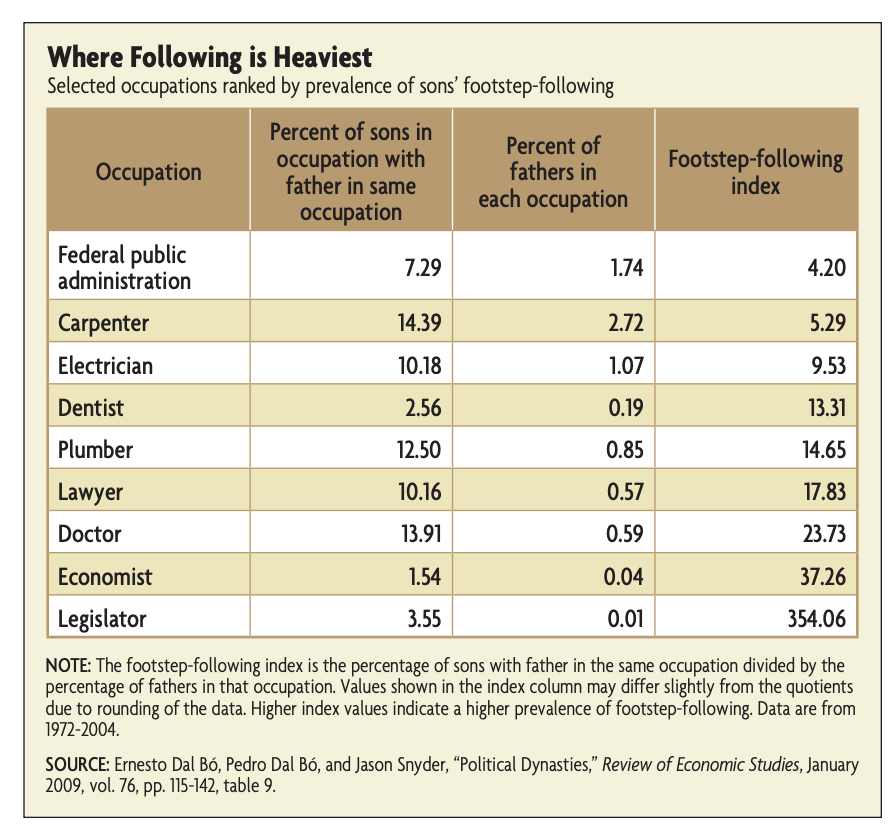This study showing that US academic faculty members are 25 times more likely than Americans in general to have a parent with a PhD or Masters degree has attracted a lot of attention, and comments suggesting that this is unusual and unsatisfactory. But is it? For various reasons, I’ve interacted quite a bit with farmers, and most of them come from farm families. And historically it was very much the norm for men to follow their fathers’ trade and for women to follow their mothers in working at home. So, I decided to look for some statistical evidence. I used Kagi’s AI Search, which, unlike lots of AI products is very useful, producing a report with links to (usually reliable) sources. That took me to a report by the Richmond Federal Reserve which had a table from a paper about
Topics:
John Quiggin considers the following as important: Uncategorized
This could be interesting, too:
tom writes The Ukraine war and Europe’s deepening march of folly
Stavros Mavroudeas writes CfP of Marxist Macroeconomic Modelling workgroup – 18th WAPE Forum, Istanbul August 6-8, 2025
Lars Pålsson Syll writes The pretence-of-knowledge syndrome
Dean Baker writes Crypto and Donald Trump’s strategic baseball card reserve
This study showing that US academic faculty members are 25 times more likely than Americans in general to have a parent with a PhD or Masters degree has attracted a lot of attention, and comments suggesting that this is unusual and unsatisfactory. But is it? For various reasons, I’ve interacted quite a bit with farmers, and most of them come from farm families. And historically it was very much the norm for men to follow their fathers’ trade and for women to follow their mothers in working at home.
So, I decided to look for some statistical evidence. I used Kagi’s AI Search, which, unlike lots of AI products is very useful, producing a report with links to (usually reliable) sources. That took me to a report by the Richmond Federal Reserve which had a table from a paper about political dynasties.

As you can see, there lots of trades and professions into which sons are much more likely to follow their fathers (also true of daughters and mothers). These numbers aren’t directly comparable with the Nature study which casts a much broader net (either parent with a PhD, whether or not they held an academic job). I’m not sure how best to adjust for this, since it affects both numerator and denominator in the odds ratio.
The last two numbers are interesting. I’m certainly aware of plenty of father-son pairs in economics (my own son has an Econ PhD, though not an econ academic job), but I don’t think there is anything special here. It’s simply the result of using more fine-grained classification. I’m sure scientists, humanists and so on are more likely to have parents in the same field than are second-generation academics in general.
On the other hand, the number for legislators is startlingly large, and I don’t think this is confined to the US. I haven’t had time to read the paper in detail to find explanations.
In summary, there is nothing special about academic jobs in this case. The bigger issue is that the children of high-status, high income parents are more likely to end up in high-status jobs and to have high incomes. That’s been known for a long time, as is the fact that the problem is particularly severe in the US.
